Stop Being Provoked By Others
Top Trending Posts

One comment can have us provoked in a matter of seconds. Have you ever stopped to think how this works? As we see it, the capacity to understand and overcome these key moments is what separates good from great leaders.
It all comes down to listening.
Listening is not a simple skill – we consider it to be complex. It involves your entire nervous system – so much more than just your ears.
Biologically, your ears play a very important role in being able to detect sound and transfer that message to your nervous system. But there is actually a whole lot more going on.
- If you are conversing with someone else and can see them either face-to-face or via a screen your eyes also play a role in listening. They are interpreting the visual cues involved in your conversation and translating these into meaning through your nervous system.
- Your past plays a role in listening. When listening to someone in a conversation today, they might remind you of something in the past or someone in the past. This very memory can shape the way you listen in the present, even though it is just a memory that has been triggered.
- Your emotions play a role in listening. You are always reacting and responding to what other people are communicating with you either verbally or visually and these emotions dictate how we behave in conversation.
- Your upbringing plays a role in listening. Depending on the cultural and social norms that you experienced in your childhood you can expect other people to behave, speak and listen a specific way. This expectation shapes your listening and can have you feeling disappointed when someone doesn’t listen the way you want them to or pleased when they do. In the same way, the quality of your listening might fail to meet someone else’s standards. And unless they let you know how they want you to listen to them, you can be blind to your own listening behaviour.
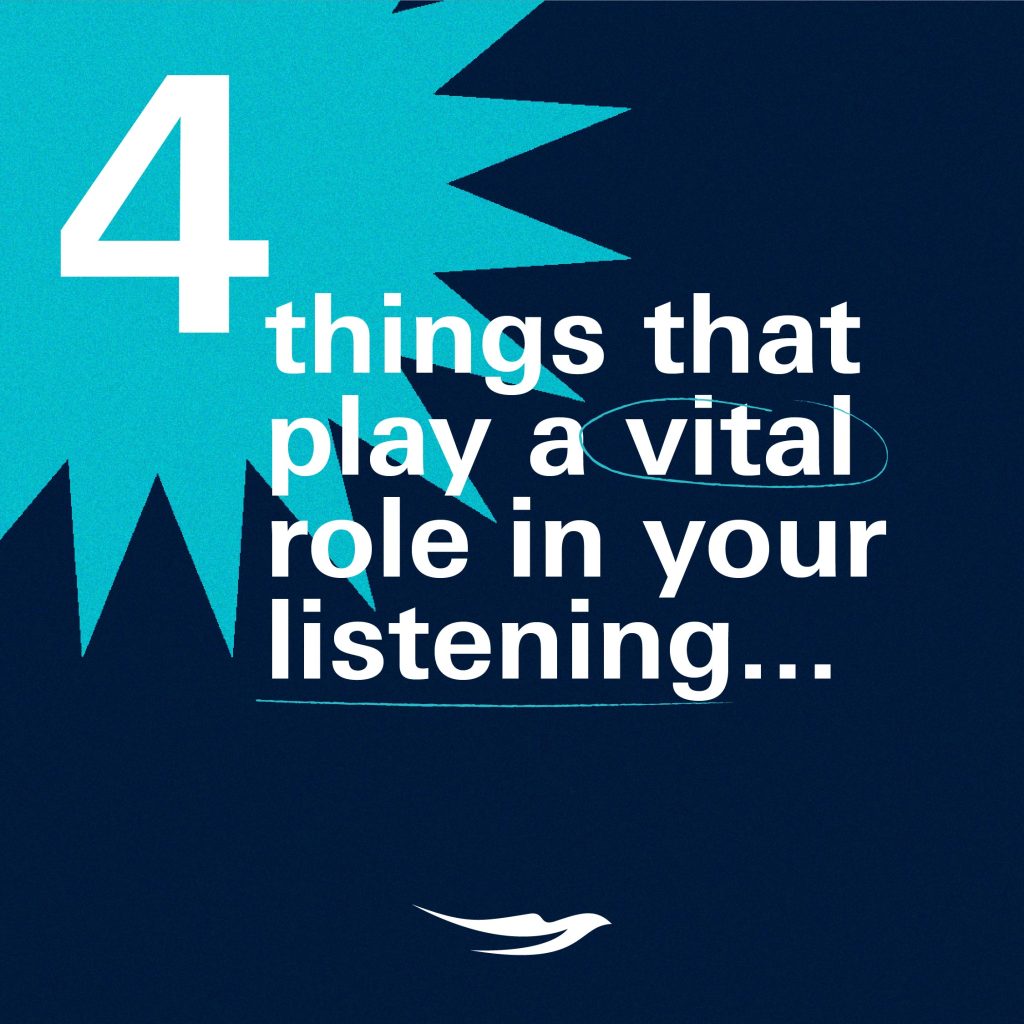

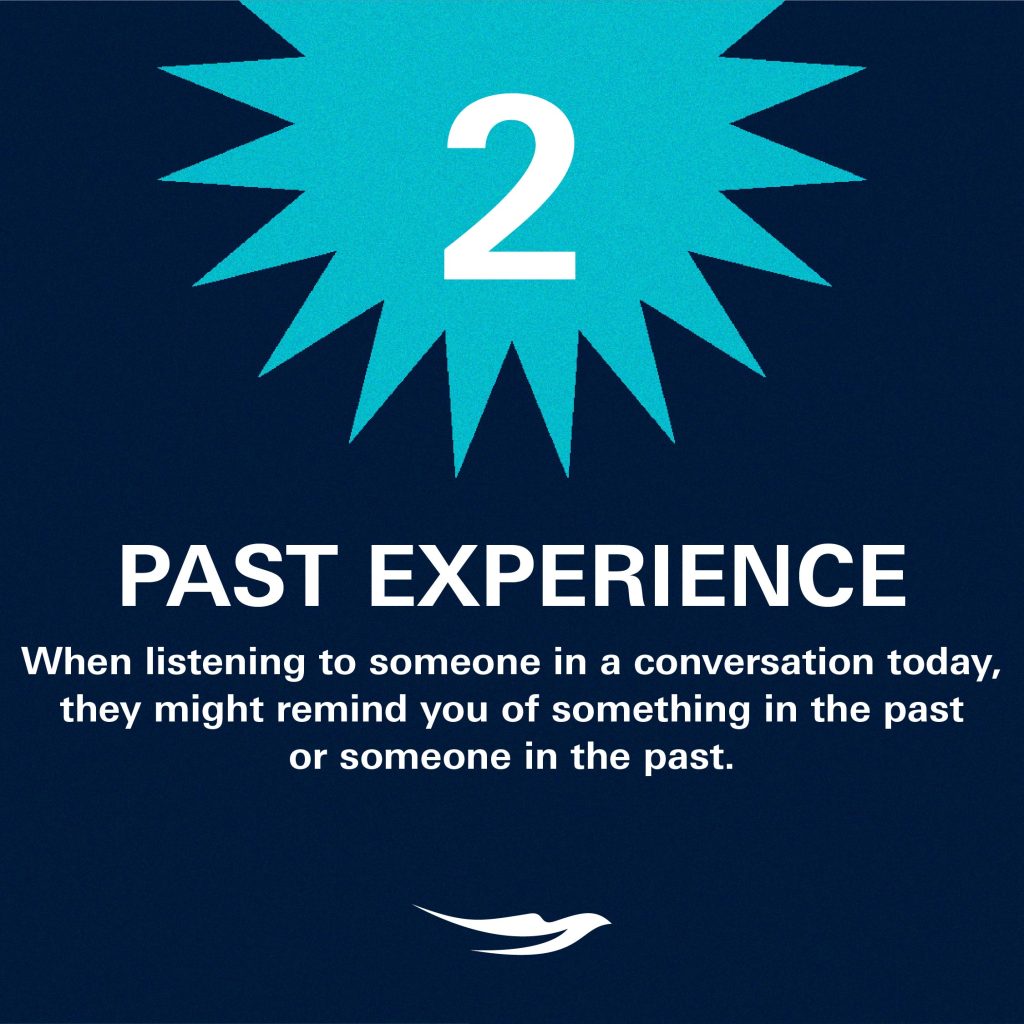
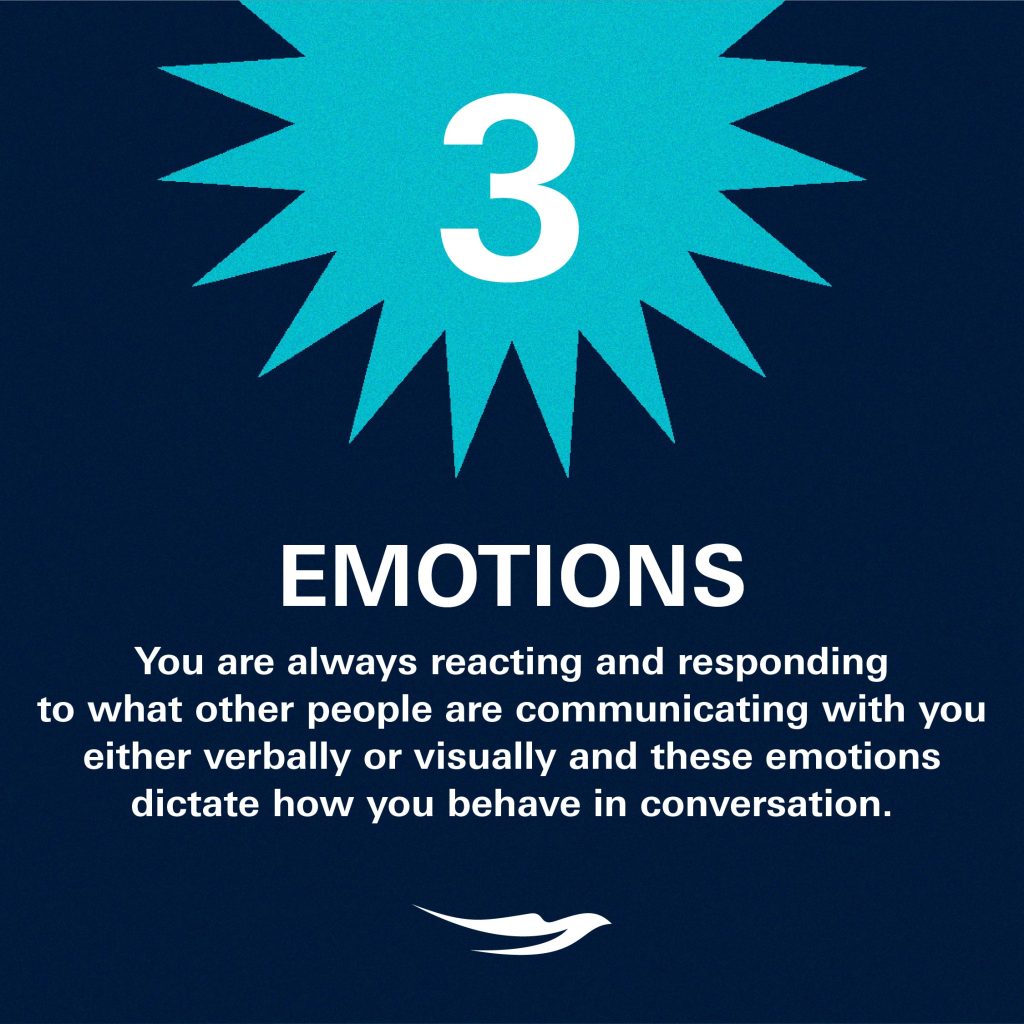
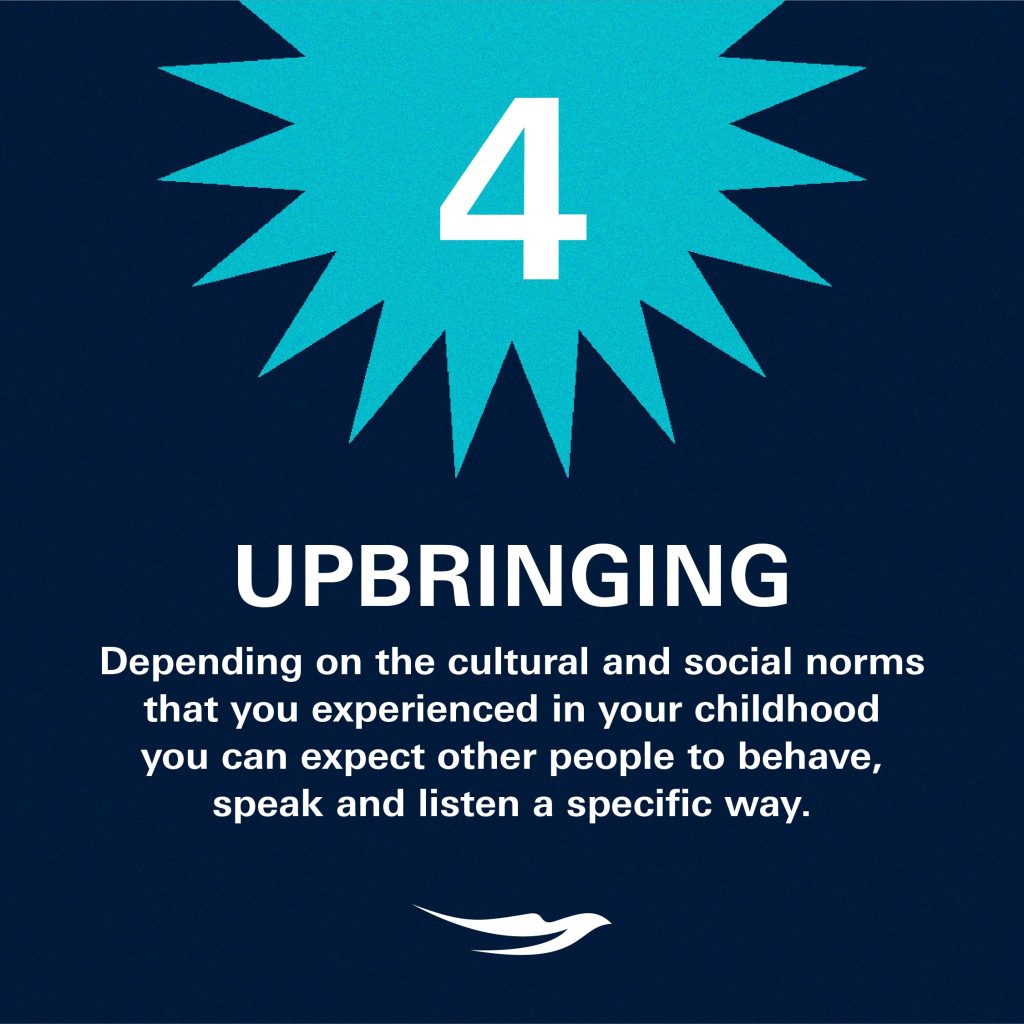
Listening is an active skill.
When you’re listening, you are not passively ‘absorbing’ what the other person has to say. Instead, you’re interpreting what they’re saying and that interpretation is shaped by your unique life experience. We say this means you’re a prejudiced listener.
To be a great leader and to understand how to manage yourself and influence others, you need to understand that prejudice. Once you understand this, you can choose to overcome old and unhelpful listening habits and create a different kind of space for those you listen to.
Here are 3 Listening Traps you need to catch as a first step towards becoming a better listener:
Trap 1 – Notice That You Listen From Your History
As a listener, you might not realise the way you listen. What has shaped your early life predisposes you to listen a particular way.
For example, if you were brought up with a very strict father who criticised your behaviour as a young person, you might be listening to everyone you engage with to make sure you’re doing the right thing – even as an adult. It is not your fault that you listen this way, but when you understand where this has come from, you can choose to explore the origins of that kind of listening and whether or not that listening serves you as an adult.
Conversely, you could have grown up in a household that always found the positive side of situations. Because you grew up in that environment, you might always be listening for “what’s possible”, no matter how difficult the situation may be.
Think about the early shapers of your life and listening.
- How were you listened to as a child?
- What were the family norms around conversation?
For whatever you have answered here, how do these patterns play out in the way that you listen today?
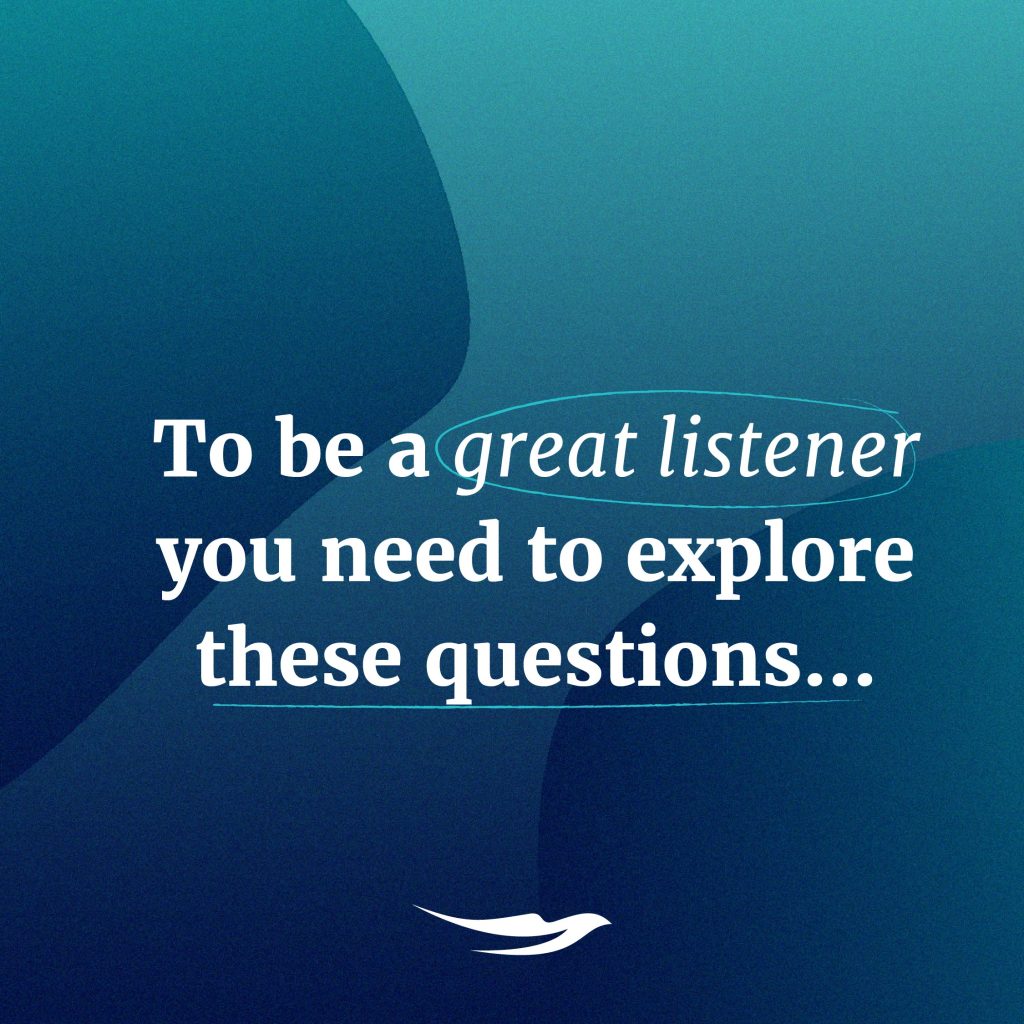
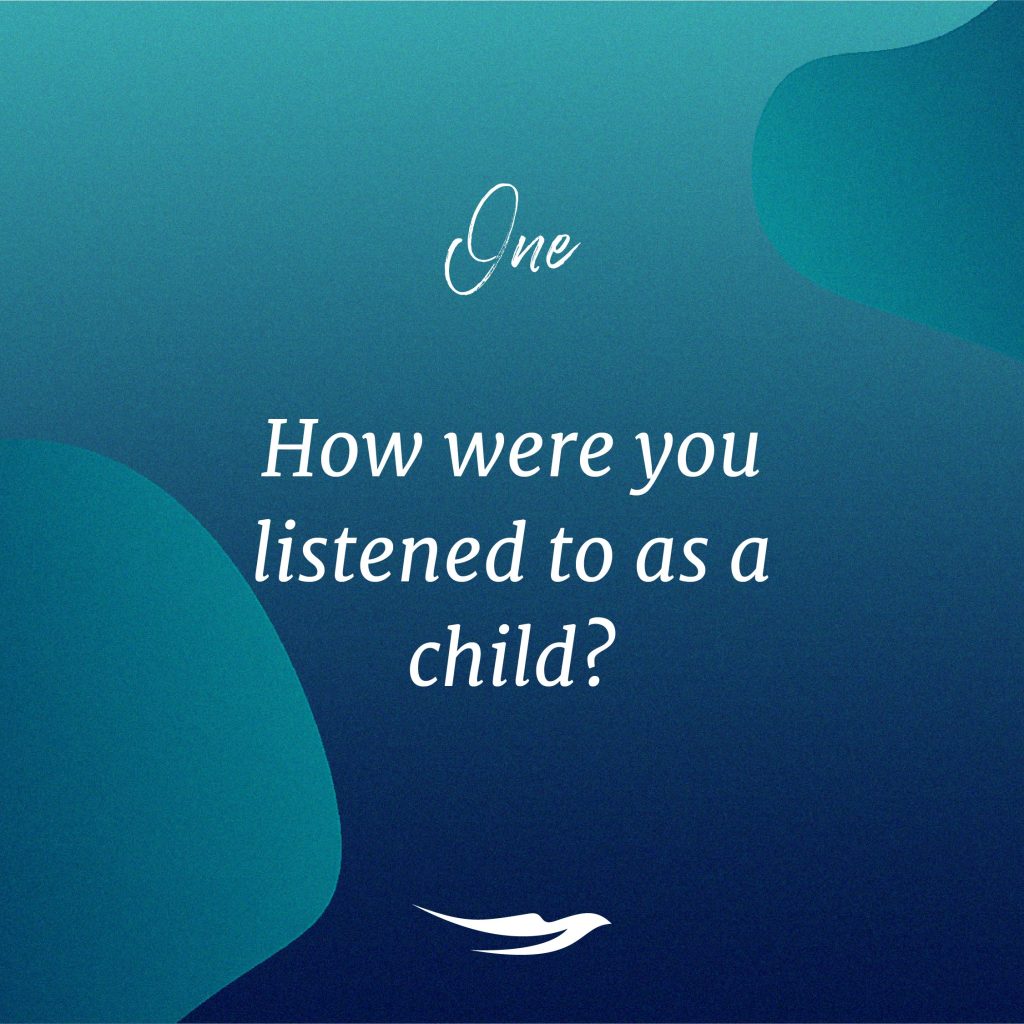
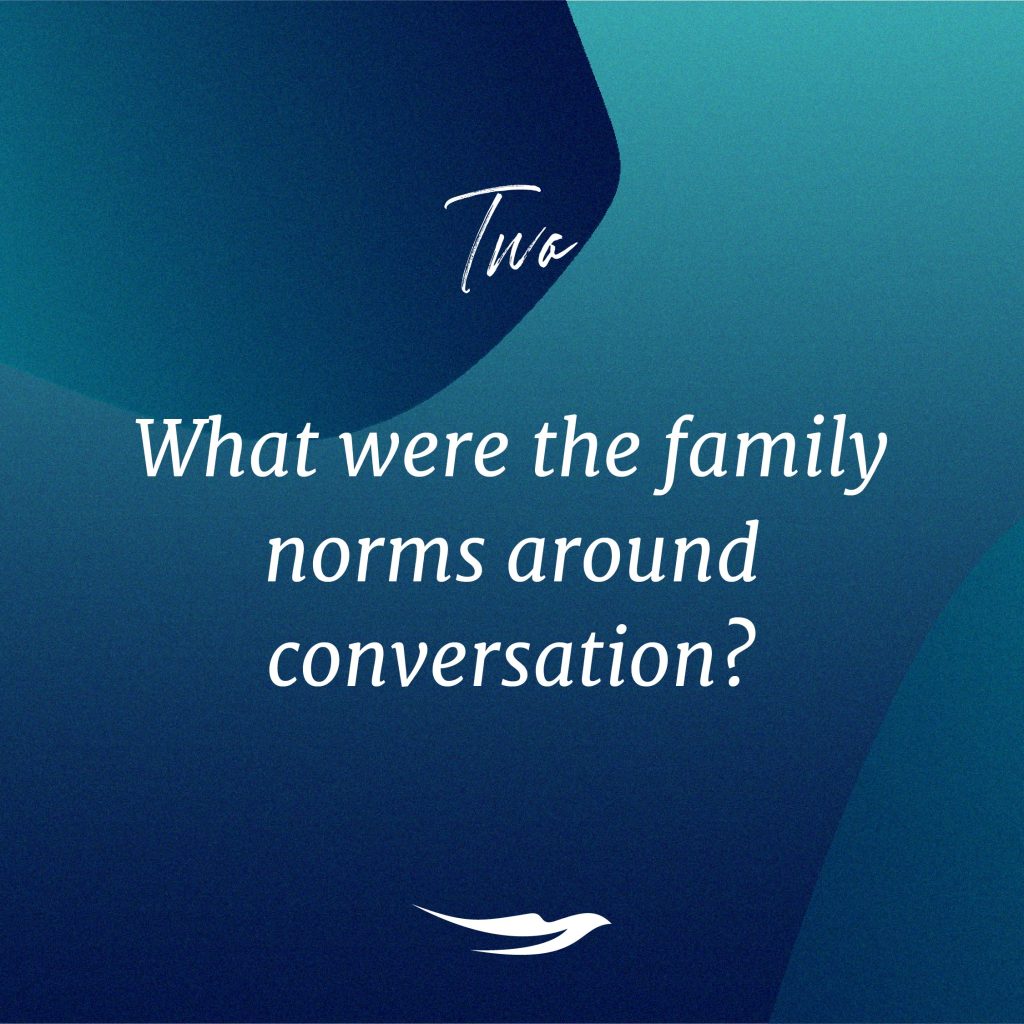
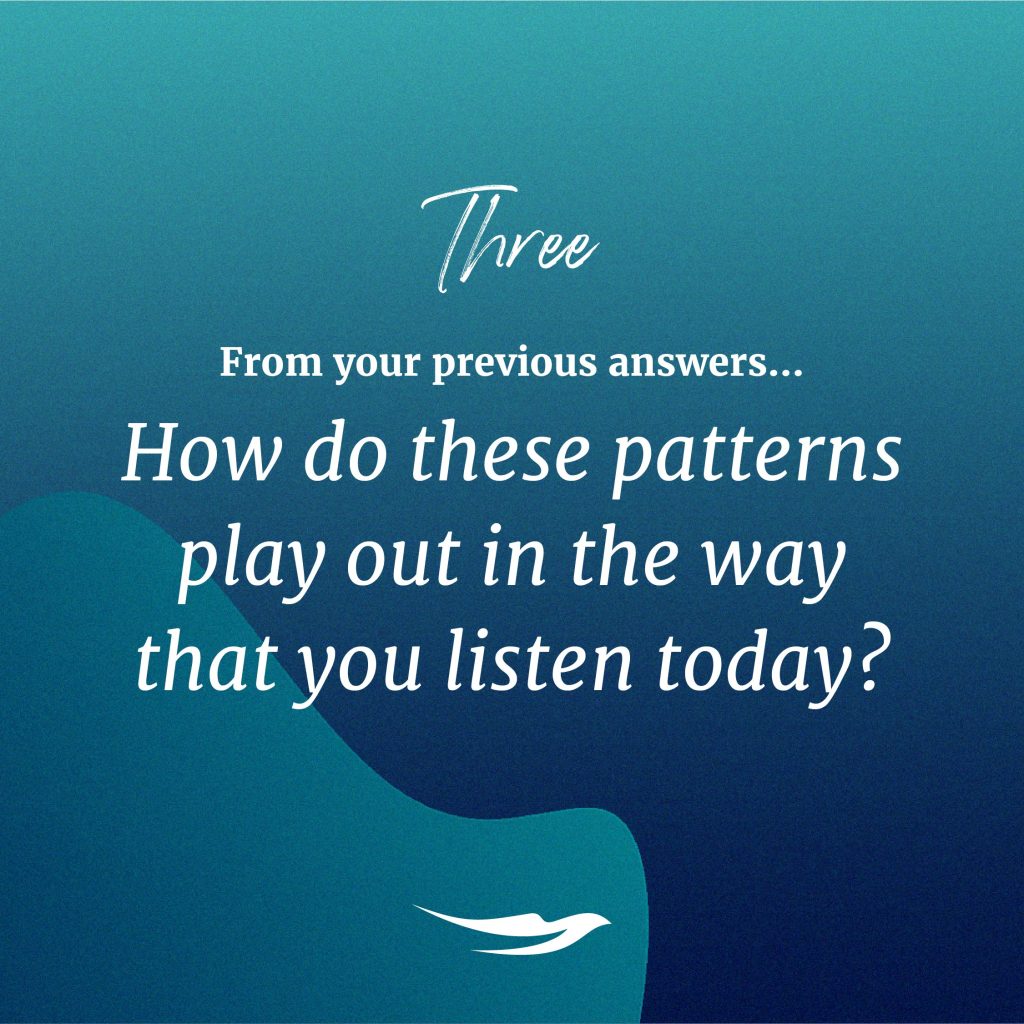

Trap 2 – Not Being Present
Trap number 2 is the idea that you are not consciously listening most of the time. Part of you is with the other person listening and another part of you is unconsciously distracted. Therefore, you don’t give your wholehearted attention to the other person.
Have you ever noticed this? Have you ever felt like this? When someone is just not really listening and you wonder why you even bother sharing?
Unfortunately, this often plays out the most with the people we spend the most amount of time with – usually the people we love the most. Just think about that for a moment. Have you found yourself half-listening to your significant other or your children or your parents? This is not designed to shame you, but rather draw attention to it and how common it is that we are not fully present.
Consider these questions:
- Who is it that I find myself tuning out from?
- When do I find myself really listening?
- Why am I really listening to some people and ignoring others?
These are all important questions to think about. Sometimes just thinking about these questions is motivation enough to start to change the way you listen.


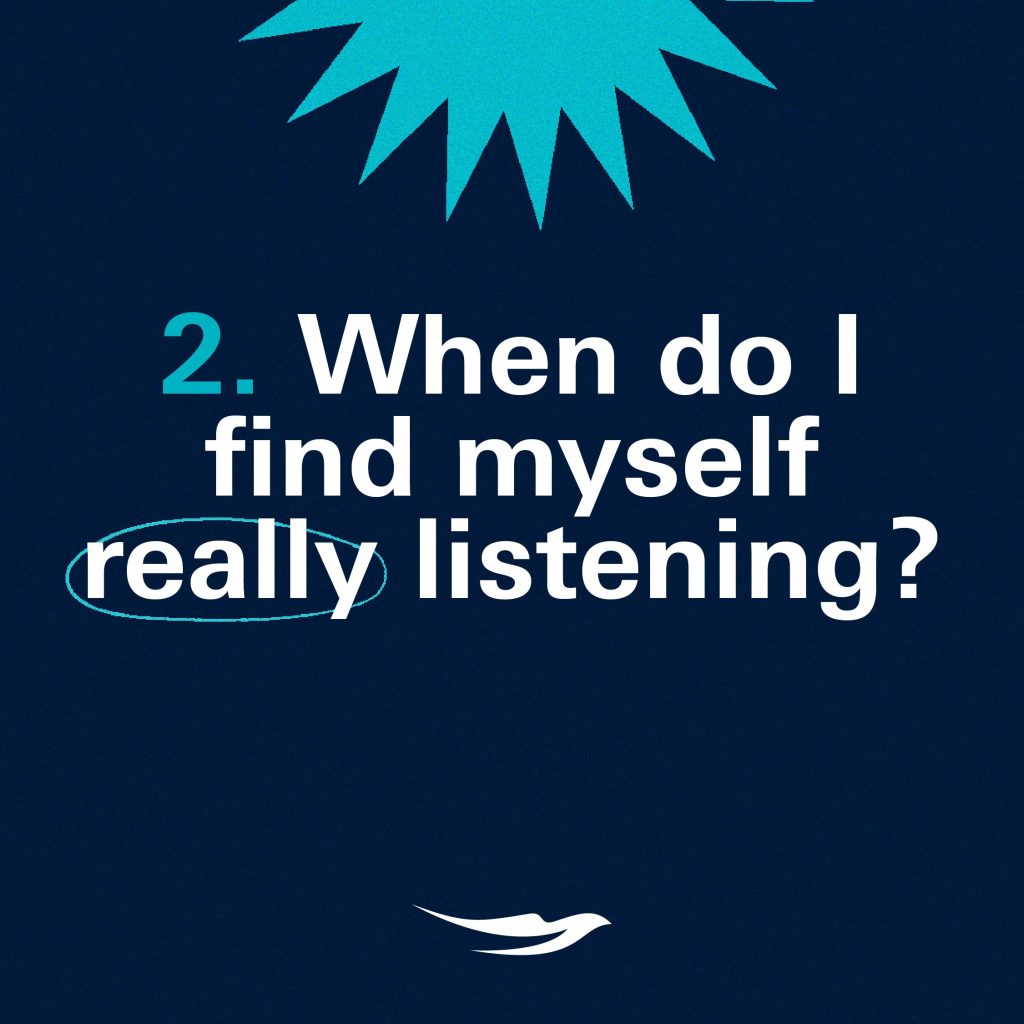
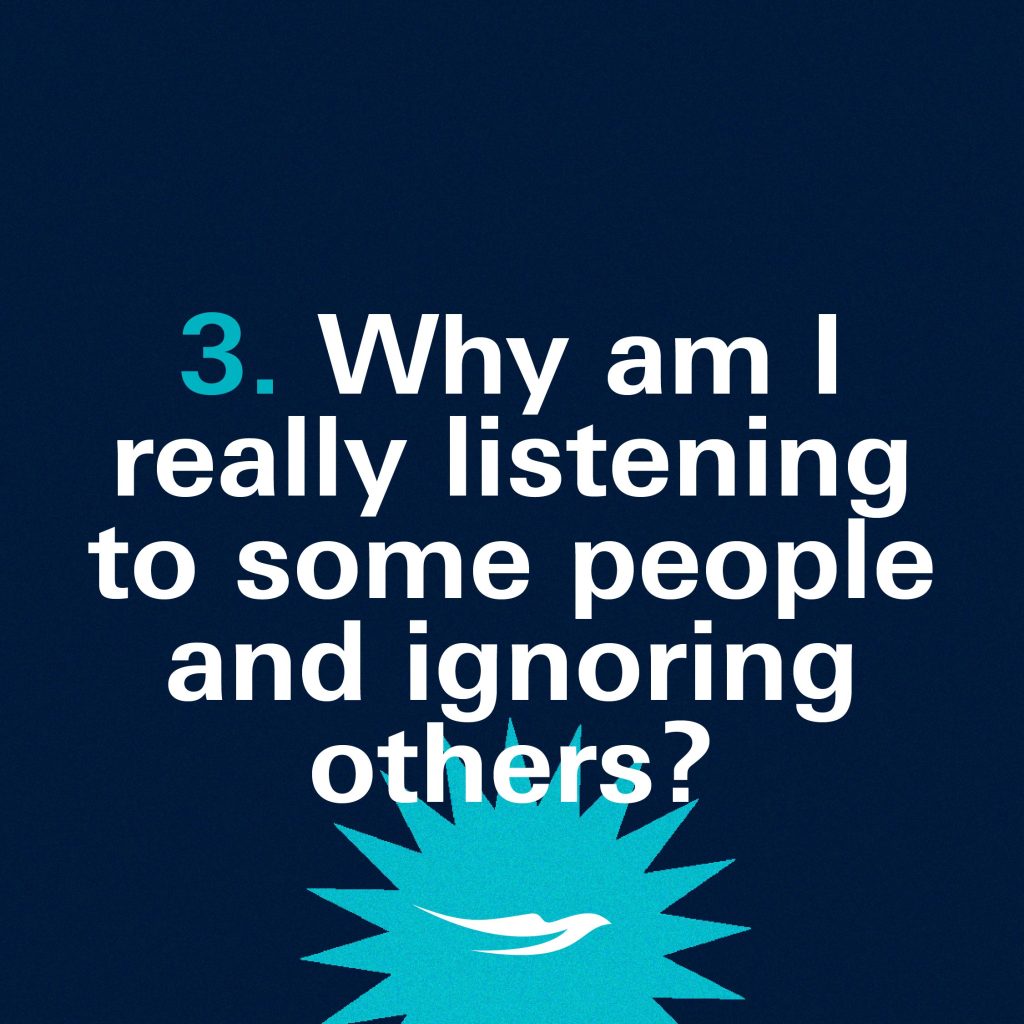

Trap 3 – Internal Conversations
You might not realise that for most of the day you have a soundtrack that’s playing in your mind and constantly assessing what’s happening within you and around you. Consider this an internal conversation. As a human being (and leader), you will always be ‘making sense’ or trying to make sense of what is happening for you.
Did you know that you (and everyone else) think about 60,000 thoughts every day?
Interestingly, 75% of the thoughts that you have are the same thoughts you had yesterday.

That means that when you are listening to somebody, you are listening with this background internal conversation always on.
The question becomes, who are you actually listening to when you think you are listening to someone else? Perhaps you are listening to your soundtrack and your expectations rather than to what the other person is genuinely trying to communicate with you?
Take a moment to tune in to some of the thoughts that you recognise in yourself.
- Do you find yourself engaging with other people with feelings of trust and openness to what they are saying? Or do you find yourself cautious and sceptical about what they’re saying and why is that?
- How might the quality of your internal conversation shape how you listen to those people you interact with?


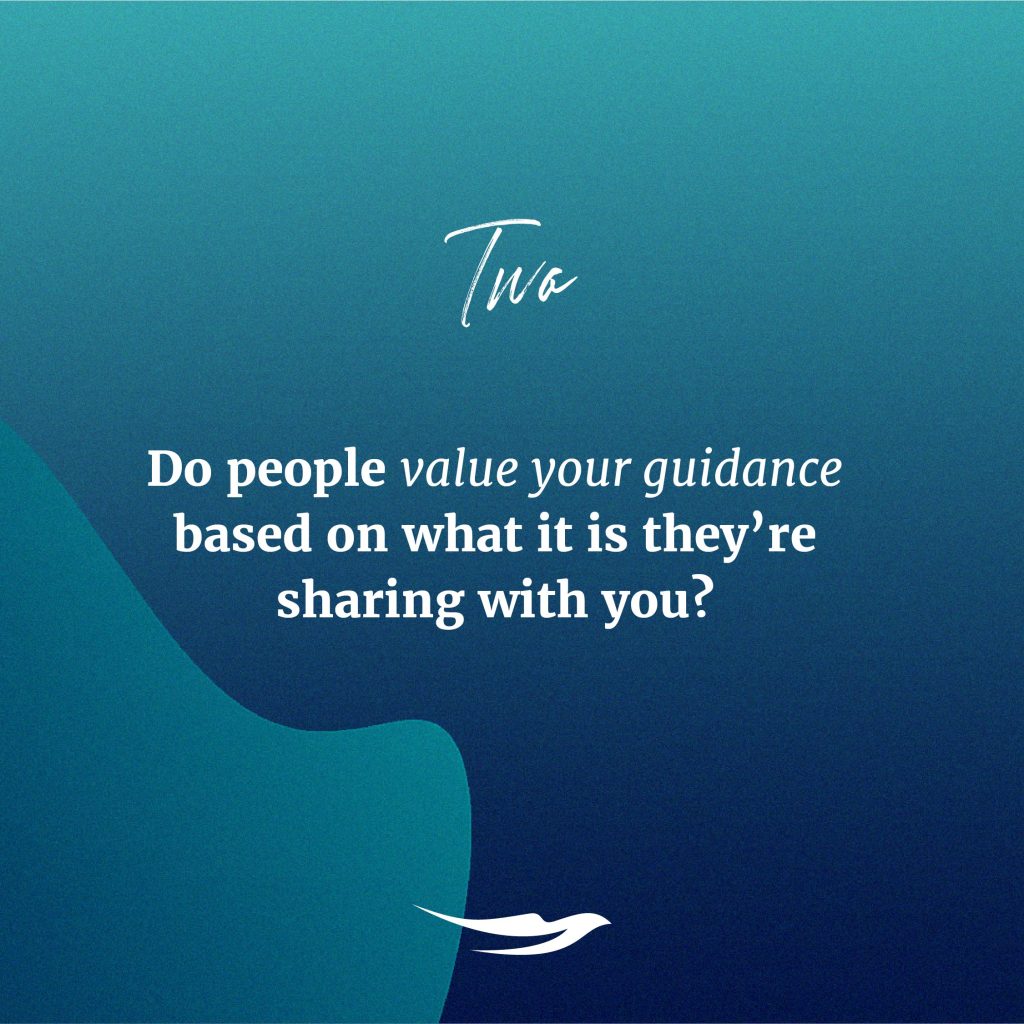
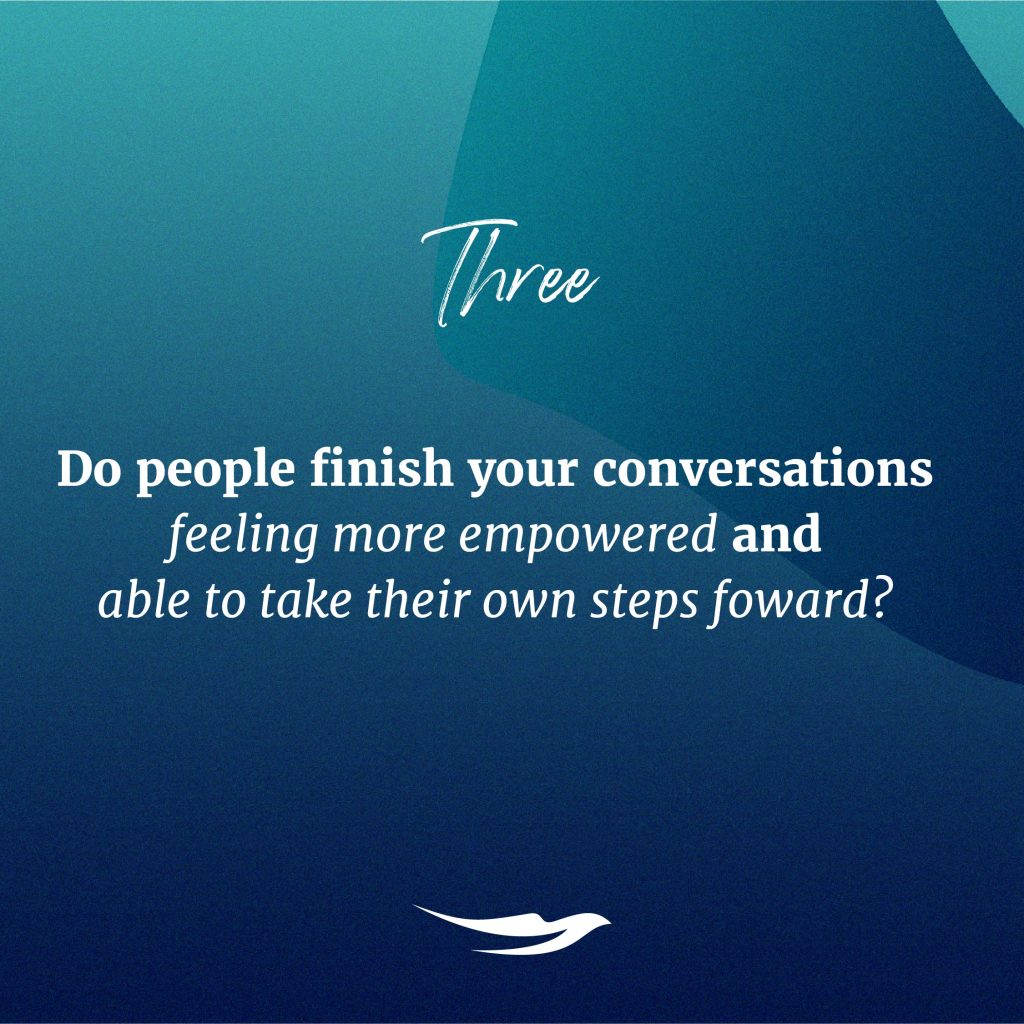
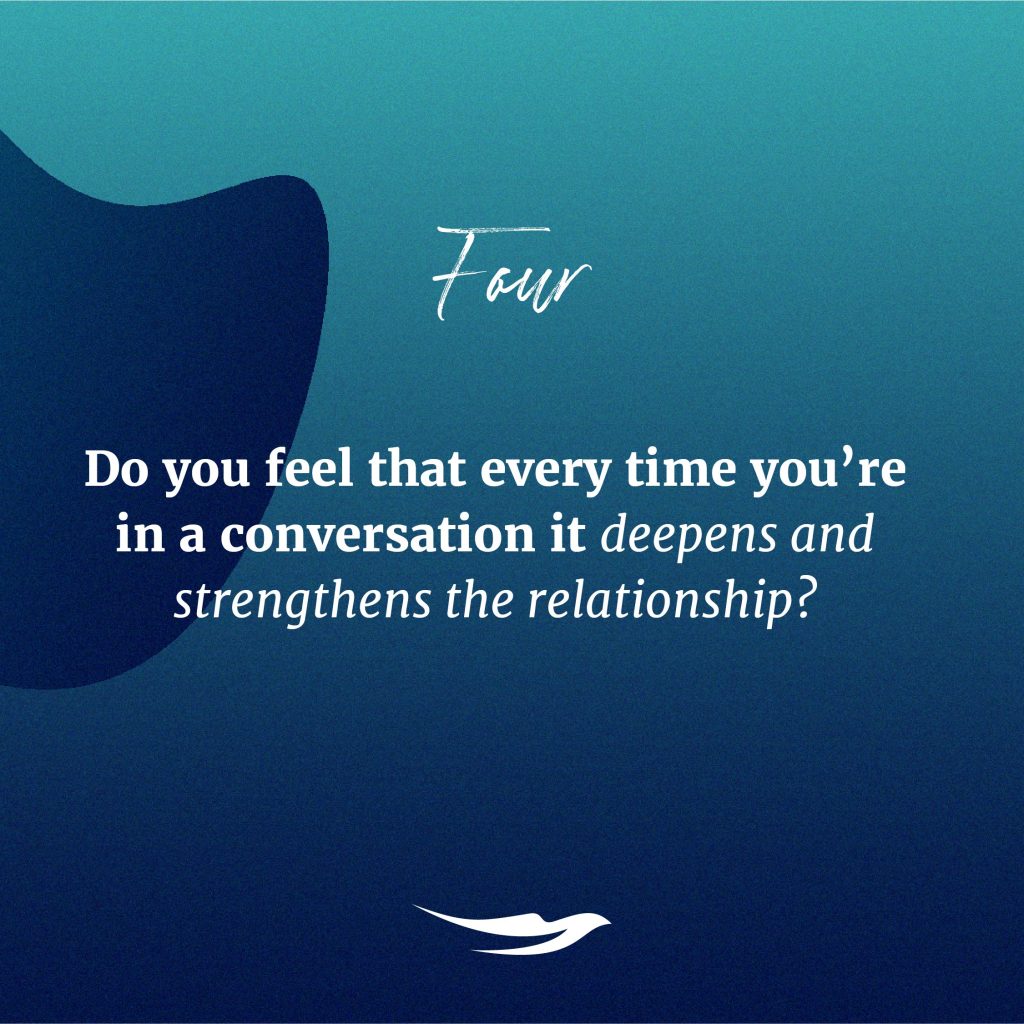

For whatever pattern of thinking you have identified in yourself, we invite you to recognise some of these patterns because they are always shaping the way you listen to yourself and to others.
We trust this short introduction to the prejudicial nature of listening has provoked some deeper reflection for you as a leader. If you are committed to learning more about the prejudicial nature of listening and overcoming some of your limitations, we offer more insights and a whole series of solutions to help you become an astute listener and a far better leader.
Share This
Top Trending Posts
Sign Up
to our blogs and receive regular updates.

Stay in the Conversation
with Liberated Leaders...






